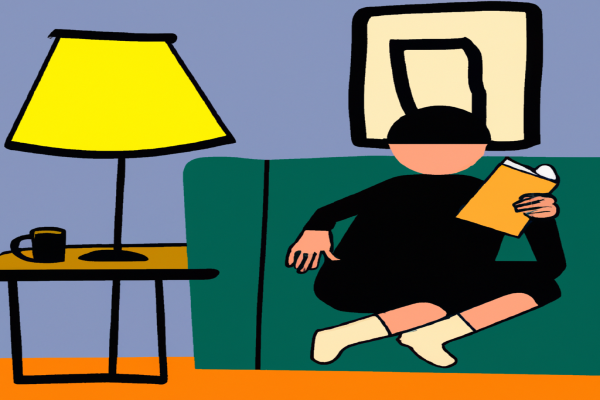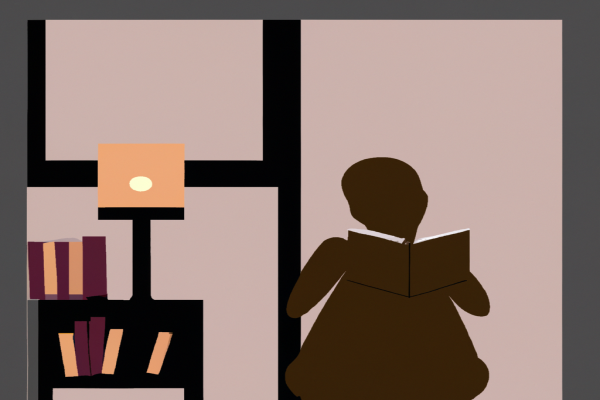To Kill a Mockingbird: Summary

To Kill a Mockingbird is a Pulitzer Prize-winning novel by Harper Lee, published in 1960. Set in the small town of Maycomb, Alabama, the story follows Scout Finch and her brother Jem as they witness the injustice of the court system during the trial of Tom Robinson, a black man accused of raping a white woman. Despite having evidence that could exonerate him, Tom is ultimately found guilty because of racial prejudice. Through the course of the novel, Scout and Jem learn about courage and doing what is right even when it’s not easy. The novel also explores themes of racism, justice, and morality.
Want to know more?
What is To Kill a Mockingbird about?
To Kill a Mockingbird is a classic novel by Harper Lee which deals with themes of racial injustice, courage, and morality. The story follows the lives of Scout and Jem Finch, two young children living in Maycomb, Alabama in the 1930s. Through the trial of a black man accused of rape, the Finch family experiences firsthand the injustice of racism. The novel also explores themes of courage, as Atticus Finch stands up for what he believes in despite opposition from his community. It also touches upon themes of morality as Scout learns to become more empathetic towards others and understand her own prejudices.
To Kill a Mockingbird: Book Club Questions
- What was your initial impression of the character Atticus Finch?
- How did Harper Lee use symbolism to illustrate the theme of justice in the novel?
- Why do you think Tom Robinson's trial was so important to the overall story?
- What does Scout's journey of maturity teach us about growing up in the South during this time period?
- How does Boo Radley's character add depth and meaning to the novel?
- What do you think is the most powerful lesson that Atticus teaches his children throughout the course of the novel?
- In what ways does Harper Lee explore racism and prejudice through her characters and their experiences?
- What does To Kill a Mockingbird say about courage and standing up for what's right?
- How do you think Maycomb County changes over the course of the book, and why are these changes important?
- Why do you believe To Kill a Mockingbird continues to be an iconic book, even decades after its publication?
What to say about To Kill a Mockingbird
- The novel's exploration of racial injustice is quite profound, and highlights how far we have come as a society.
- Atticus Finch's moral courage in standing up for justice is an inspiring example for all who read the book.
- The characterization in the novel is masterful, making it easy to connect with the characters and their struggles.
- To Kill a Mockingbird serves as a powerful reminder of equality and respect between people of different backgrounds and beliefs.
- Harper Lee's writing style is remarkably effective at communicating complex themes in an accessible manner.
- The various themes explored in this novel all come together to create a thought-provoking narrative that resonates with readers long after they've finished it.
- To Kill a Mockingbird portrays the complexity of human relationships with remarkable accuracy and insight.
- The story offers a unique perspective on the injustices of racism and prejudice that are still relevant today.
- The novel is a timeless classic that speaks to readers of all ages about the importance of standing up for what is right and just regardless of difficult circumstances.
- To Kill a Mockingbird is truly an iconic work that will continue to be celebrated for many years to come .
Top 5 Quotes from To Kill a Mockingbird
- "You never really understand a person until you consider things from his point of view... Until you climb inside of his skin and walk around in it."
- "I wanted you to see what real courage is, instead of getting the idea that courage is a man with a gun in his hand. It's when you know you're licked before you begin but you begin anyway and see it through no matter what."
- "People generally see what they look for, and hear what they listen for."
- "It's never an insult to be called what somebody thinks is a bad name. It just shows you how poor that person is, it doesn't hurt you."
- "Atticus said to Jem one day, 'I’d rather you shot at tin cans in the backyard, but I know you’ll go after birds. Shoot all the blue jays you want, if you can hit ‘em, but remember it’s a sin to kill a mockingbird.'"
Adaptations of To Kill a Mockingbird
Film Adaptations: 1. To Kill a Mockingbird (1962) 2. To Kill a Mockingbird (2020) TV Adaptations: 1. To Kill a Mockingbird (1970) 2. A Time to Kill (1996) 3. Atticus Finch: A Man for All Seasons (1998) 4. Scout's Honor (2001) 5. Atticus Finch: Courage Under Fire (2002) Radio Adaptations: 1. To Kill a Mockingbird (1982) 2. Harper Lee's To Kill a Mockingbird (1994) 3. To Kill a Mockingbird (2007) 4. Harper Lee's To Kill a Mockingbird: A Radio Play Adaptation of the Pulitzer Prize-Winning Novel (2014) 5. Harper Lee’s To Kill a Mockingbird: A New Radio Drama on BBC Radio 4 (2016). Theatrical Adaptations: 1. To Kill a Mockingbird (1990) 2. The Adventures of Tom Sawyer and Huckleberry Finn/To Kill a Mockingbird (1993-1994) 3. To Kill A Mockingbird – Theatrical Version by Christopher Sergel(1995-present day) 4. Go Set A Watchman – The Broadway Musical(2017-2018).
Other books by Harper Lee
- Go Set a Watchman
Did you know?
To Kill a Mockingbird was originally titled "Atticus" after the main character. Harper Lee changed it to the title we know today at her publisher's suggestion.




